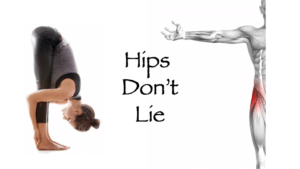What is the difference between a masseur and a massage therapist? And what is a bodyworker (apart from somone that beats car panels!)? How about a masseuse?
A straw poll of massage clients gave some very different answers:
- One person thought a massage therapist will be more qualified than a masseur.
- A working class man thought a “masseur” was the man down the steam baths that beats you up a bit and you feel better for it, while a “massage therapist” is a woman in a beauty clinic.
- A woman thought a “masseuse” is a hooker and a “massage therapist” is a serious practitioner.
So what is a “masseur”?
When massage was first popularised in europe in the early 19th century, the international language was french, and so the male that does massage was called a “masseur”. A woman that does it is a “masseuse”.
In 1894 the “Society of Trained Masseurs” was formed to formalise massage in a medical setting, and it went on to become the Chartered Society of Physiotherapists. Nowadays, physios vary widely in their use of massage, some avoiding it altogether.
In the late 20th century, many therapists found the name “masseur” had associations they did not want to identify with. Either the name masseur had become a euphamism for a hooker or was associated with unskilled manual labour. Many therapists call themselves “massage therapists” to make clear the purpose of the work is to help promote wellbeing.
However, as most massage therapists are women, and may work from a salon, sometimes men, particularly working class men are alienated, and so may stick with the old word.
What is a “bodyworker”?
Many therapists may have basic qualifications, and for general relaxation in beauty salons, this is quite enough, especially if this is not the key skill of a beautician. If they don’t practice much, however, then they should not expect to become very skilled.
However, to develop a career by learning more deeply about what they are doing, people like to keep interested in their work, and learn new things. In response to the tremendous rate of stress-related injury, any therapists have ongoing training, and have learnt many mobilisation and manipulation techniques from other manual therapists like physios, chiros and osteopaths.
“Remdial masseurs” worked under supervision of physiotherapists, focusing on rehabilitation and recovery from injury. Much of this work has been updated and called “sports massage” to help people after athletic injury.
As a massage session tends to be longer than a medical consultation, massage therapists have the time to help the client increase awareness in their bodies, and develop poise and better patterns of movement. Ideas from Rolfing, Feldenkrais, Pilates and yoga get incorporated.
The client then gets more than a relaxing massage, they get therapy to help them to greater awareness of their body and a greater sense of wellbeing. With this in mind, many therapists now call themselves “bodyworkers”, to break the confines of classic “massage”, and also stress their skill level is greater than basic massage therapy.
This term has not spread far beyond the narrow confines of the world of therapists, however.
A rose by any other name
So the public call them masseurs (or masseuses) and massage therapists, and they call themselves massage therapists and bodyworkers.
All the same thing really!
You choose the therapist to suit your outlook and objectives. But check their qualifications, insurance and experience with people in your situation.
That is more important than what they call themselves – the name is mostly just marketing.






